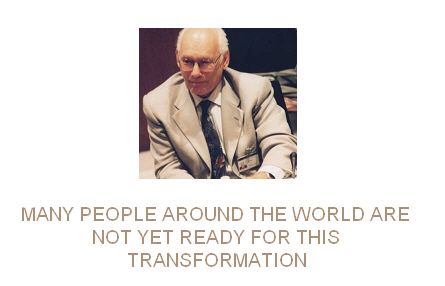|
Introduction I
Universal Declaration
I Transformation I
Standard Setting I
Living Law - Article 42 |

|
 |
|
The full enjoyment of human rights by
indigenous peoples requires not only a change in legal perceptions and
judicial traditions, but more often than not a thorough rethinking of
the concept of the nation-state. Indeed, most modern states are based on
the myth of a single culturally homogeneous nation occupying a specific
territory and linked by a single legal and administrative structure.
This nineteenth century fiction, propagated by some European states, is
not, however, a universal phenomenon. It has become even less so in the
post-colonial world in which massive migrations and a globalized economy
weaken the very model of the nation state. The full access of indigenous
peoples to human rights requires a reconceptualisation of the model of
the monocultural, monoethnic nation state. Albeit, many people around
the world are not yet ready for this transformation. |
 |
|
The human rights of indigenous peoples have
made some progress in recent years, both at the national as at the
international level. Yet much more remains to be done. The coming decade
will be crucial in determining whether this progress will continue and
become consolidated, or whether it will flitter away as only one more
utopian aspiration that was not followed up with sufficient vigour and
persistence. |
INDIGENOUS PEOPLES AND
THEIR ACCESS TO HUMAN RIGHTS
Rodolfo Stavenhagen
Former UN Special Rapporteur on the situation of human rights
and fundamental freedoms of Indigenous Peoples
THE INTERNATIONAL COUNCIL ON HUMAN RIGHTS
POLICY
Sixth Annual Assembly
International Meeting on Access to Human Rights
Guadalajara, January 17-18, 2003 |
|
|
|
WE INVITE YOU TO BE IN
THE GLOBAL DIALOGUE |

POLITICS OF TRANSFORMATION |
|
Introduction I
Universal Declaration
I Transformation I
Standard Setting I
Living Law - Article 42 |
 |

S I T E M A P
M A P A D
E L S I T I O
dbn@dialoguebetweennations.com
Copyright Natalie Drache 1999 |




